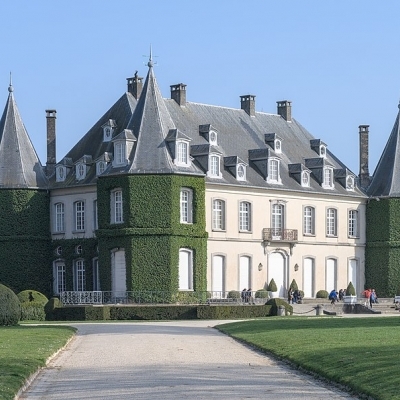What is the current state of relations between Switzerland and the European Union? On 26 May 2021, the Federal Council broke off negotiations on the institutional agreement with the EU. On 23 February of this year, it handed over to Brussels a set of proposals intended to form a "roadmap": if both parties agree on these points, new negotiations could take place. Exploratory talks were held at the end of March and a new round took place this week.
This is a pivotal moment for Swiss-EU relations, which is why the Swiss-EU Committee has chosen to present its action now. The Committee is composed of a group of personalities involved in professional, academic and economic circles both in Brussels and in Switzerland. It aims to contribute to the stabilisation of a lasting and serene relationship between two partners who share common interests and values, and who share respect for freedom, the rule of law, fundamental rights and solidarity. It aims to facilitate a more comprehensive understanding of the major issues at the heart of the relationship between Switzerland and the EU.
It will publish analysis on key issues that shape the relationship between Switzerland and the EU in order to add to the information already available to the public. It will organise debates and conferences in Brussels and in Switzerland.
The Committee, which is a distant descendant of a similar body from the 1980s, is formed at another key moment in Switzerland's European policy: on 15 May, we will vote on Switzerland's contribution to the European Border and Coast Guard Agency, which protects the EU's external borders. The continuation of our association with the Schengen security system depends on this decision. Since we joined, our borders have been extended to the limits of the EU, our security has improved, as has our comfort. Today, we can cross the 1935 km of border separating us (or bringing us closer) to our EU and EEA neighbours without presenting any documents and without even realising it. Customs officers and police officers can at any time and in any place access the real-time database on cross-border crime across Europe and in particular on the criminal networks that threaten our country. If we were left to our own resources, we would be much less effective. We would no longer be able to participate in the distribution of asylum seekers under the Dublin Agreement. Travellers to Switzerland would have to obtain two visas for their stay in Europe and in Switzerland instead of one as at present: this would be a serious handicap for the tourism industry. Certainly, some Frontex agents have engaged in abuses, including the illegal turning back of migrants stranded at European ports. The agency suffers from organisational shortcomings. But reforms have been initiated or are underway, the protection of migrants' fundamental rights has been strengthened. We need a Frontex Agency that operates with respect for the dignity of all parties involved, and Switzerland is making sure of that.
We are currently living in a time when Europe's peace, security and economic circuits are under threat. Through strong international cooperation, we were able to contain the pandemic and respond to the shocks caused by the war in Ukraine. In this perilous situation, we also see that the basis of our relationship with the EU is not secure. The foundation remains the 1972 Free Trade Agreement. Having rejected membership of the European Economic Area in 1992, we signed bilateral sectoral agreements with a view to an eventual EU membership. Now that this prospect has disappeared, we remain committed to the bilateral path, ratified several times by the Swiss people, while the European Union wants to perfect it to bring it more in line with the rules governing the internal market to which it gives us access.
The failure of the institutional agreement has led to the suspension of the mutual recognition of technical standards for certain products, the export of which is now hindered (Medtech). Cooperation in the vital area of scientific research has been suspended. We differ on certain aspects of the free movement of persons, including the application of accompanying measures. The legal resolution of disputes between contracting parties is problematic.
We are looking for mechanisms to overcome these difficulties and to extend cooperation to new areas.
Our Committee will follow these developments closely and aims to enhance public awareness so that the public is fully informed about any decisions taken or to be taken.
The members of the CH-EU Committee are:
Jean RUSSOTTO (Chairman)
Christine KADDOUS
Philippe KENEL
Joelle KUNTZ
François NORDMANN
Christophe RAPIN


